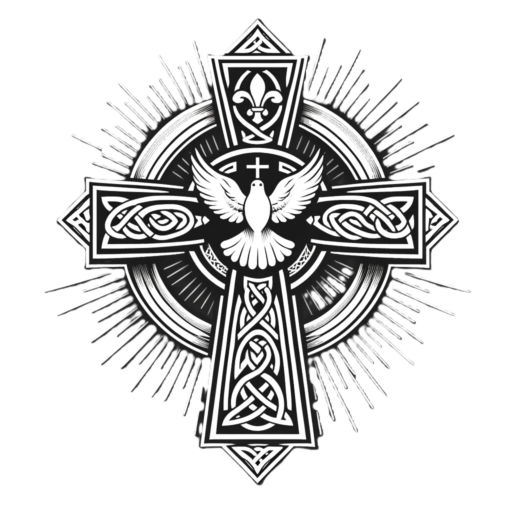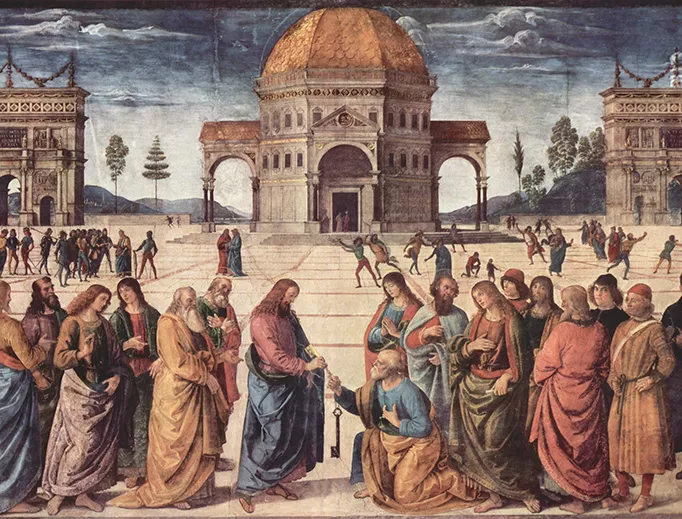The Enduring Influence of the Early Church Fathers
1. Apostolic Continuity
The early Church Fathers bridged the living memory of the apostles and later generations. Writing within a few centuries of Christ, they transmitted the authentic faith, ensuring that Christian doctrine evolved within continuity—not innovation. Their works preserve not just teachings but the living tradition of the apostolic Church.
2. Formation of Christian Doctrine
Through theological dialogue and debate, the Fathers articulated the doctrines that define Christianity—the Trinity, the divinity and humanity of Christ, the mystery of the Incarnation. These weren’t abstract speculations but clarifications born from worship and lived faith. Their legacy became the grammar of Christian theology for all later generations.
Thinkers influenced by the Fathers include Henri de Lubac and Hans Urs von Balthasar.
3. Canon of Scripture
The Fathers discerned the authentic voice of Scripture, establishing the biblical canon through prayerful consensus. Their criteria—apostolic origin, orthodoxy, and liturgical use—gave the Church its authoritative Scriptures. Without their discernment, Christian unity around the Word of God would have been impossible.
4. Preservation and Interpretation
Beyond compiling texts, the Fathers commented, copied, and contextualized Scripture for their times. Their exegetical writings, rooted in the unity of Scripture and Christ’s revelation, remain a treasure for modern theology.
Modern thinkers who drew on this vision include Henri de Lubac and Hans Urs von Balthasar.
5. Defense and Renewal of Faith
Confronting heresies and pagan philosophies, the Fathers forged the first Christian apologetics. Their defense of orthodoxy shaped the Church’s identity amid cultural pressure. This same courage inspired modern figures like Bishop Robert Barron, who often cites Augustine, Aquinas, and Irenaeus in his evangelization.
6. Worship and Christian Life
Their influence extended beyond doctrine into worship, prayer, and community. The Fathers shaped early liturgies, the sacraments, and the moral life of believers—laying the foundation for the Church’s living spirituality.
Conversions influenced by patristic thought include St. John Henry Newman and Scott Hahn.
Scott Hahn, reflecting on his journey from Presbyterianism to Catholicism, discovered how deeply the early Church Fathers upheld the literal meaning of Christ’s words at the Last Supper. While studying covenant theology, he realized that Jesus used the word “covenant” only when instituting the Eucharist — the moment He gave His Body and Blood to form a new family of faith. As Hahn explains, “If covenant means family, then sharing flesh and blood is what makes us family.” His study led him to see that for the first seven centuries of Christianity, every Church Father taught and believed in the real presence of Christ in the Eucharist — a truth that ultimately drew him home to the Catholic Church.
Update: Pope Leo XIV recently declared St. John Henry Newman a Doctor of the Church — recognizing his profound theological contribution rooted in the Fathers of the early Church. You can watch the discussion on Word on Fire Show Ep. 514 →
7. Modern Rediscovery: Ressourcement and Renewal
The 20th-century ressourcement (“return to the sources”) movement, led by theologians like de Lubac, Balthasar, and Daniélou, revived the patristic heritage as a response to modern fragmentation. Their work inspired Vatican II’s call to read Scripture “in the same Spirit in which it was written.”
In a revealing episode of Bishop Barron Presents (see Ep. 299), Bishop Barron and Dr. Larry Chapp unpack the theological history behind Second Vatican Council. They argue that the so‑called “traditionalist” critique often misreads figures like Henri de Lubac and Hans Urs von Balthasar: these theologians sought to renew doctrine through a return to the Fathers (a ressourcement), but many progressives mis‑executed Vatican II’s vision by abandoning continuity. The conversation clarifies that the real fault lies not with the decree texts (like Gaudium et Spes) but with the hermeneutics of rupture that followed.
Conclusion
The Early Church Fathers are not relics of the past but architects of Christian identity. From their pens flowed the foundations of faith; through their rediscovery by Newman, de Lubac, and modern converts, their wisdom continues to renew the Church. Their vision of truth—anchored in Scripture, nourished by worship, and illuminated by reason—remains the wellspring from which the Church still draws life.
New Release: A fresh episode of Bishop Barron Presents features a captivating conversation between Bishop Robert Barron and Fr. Joseph Fessio, SJ — a priest shaped by leading Catholic theologians of the twentieth century such as Henri de Lubac, Joseph Ratzinger (Pope Benedict XVI), and Hans Urs von Balthasar. Their discussion explores Fr. Fessio’s formation, his European studies, and the founding of Ignatius Press.
Major Works of Key Church Fathers
Ignatius of Antioch (c. 35-107 AD)
Major work: His series of Epistles (e.g., to the Smyrnaeans, Ephesians) which shaped early Christian ecclesiology and the role of the bishop.
Polycarp of Smyrna (c. 69-155 AD)
Major work: His Letter to the Philippians (the surviving document) defending orthodox faith and linking to the apostolic era.
Irenaeus of Lyons (c. 130-202 AD)
Major work: Against Heresies — a foundational critique of Gnosticism and affirmation of apostolic tradition.
Athanasius of Alexandria (c. 296-373 AD)
Major work: On the Incarnation of the Word (De Incarnatione) — articulated the doctrine of Christ’s divinity and humanity.
Basil the Great (c. 329-379 AD)
Major work: His treatise on the Holy Spirit, and the monastic rule for the community at Caesarea; though a direct Vatican-page link is not provided here, his defense of the Trinity is cited in the Vatican document General Audience 16 Oct 2024.
Augustine of Hippo (354-430 AD)
Major work: Confessions — his autobiographical masterpiece and one of the greatest works in Christian literature.

